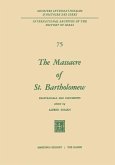Neither in English nor in French is there a published study of Napoleon Bonaparte's reestablishment in France of the Congregation of the Mis 1 sion, whose members are generally known in France as Lazarists. This study, Napoleon and the Lazarists, 1804-1809, examines the reestablish ment of the Congregation of the Mission in France and its subsequent relations with the Napoleonic Government. Because religion played an important role in the policies and plans of Napoleon, this study is set with in the framework of Napoleon's general religio-political policy. Since the Concordat of 1801 was the legal instrument by which the Catholic Church was reestablished in France and also a necessary preliminary to and a model for the reestablishment of the Lazarists, its negotiation is treated in detail. The examination of the reestablishment of the Congre gation of the Mission in France under Napoleon Bonaparte and its sub sequent history between 1804 and 1809 follows. It is a study in microcosm which reflects Napoleon's general religio-political policies. Who are the Lazarists? The name Lazarist originates from St. Lazare, the original Motherhouse in Paris of the Congregation of the Mission of St. Vincent de Paul. St. Vincent de Paul founded the Congregation of the Mission in 1625. With the cooperation of St. Louise de Marillac, he also founded the Congregation of the Daughters of Charity.








